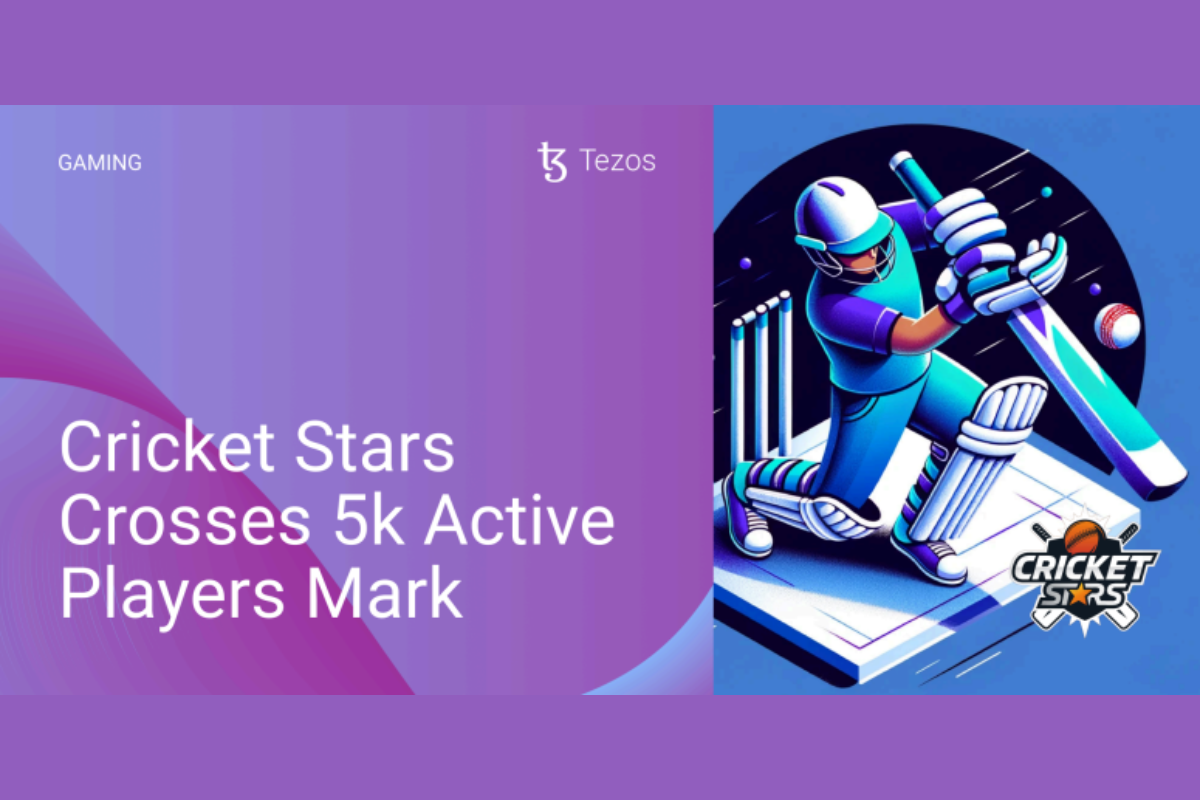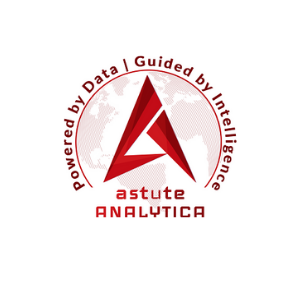Blockchain
Tezos-Based Cricket Stars Game Exceeds 5k Monthly Players, 12k NFT Transactions

Cricket Stars, India’s first strategy-based NFT cricket game has hit a major milestone, surpassing 5,000 monthly active players and more than 12,000 NFT transactions on the Tezos blockchain last month. Released in November 2023, free-to-play Cricket Stars has
quickly gained traction, offering players an immersive blend of strategy and cricket gameplay within the rapidly expanding Tezos gaming ecosystem.
Designed by GoLive Games Studio, Cricket Stars revolutionizes the gaming experience by offering a captivating mix of sports strategy and cricket gameplay. Players collect cricket skills as tradable playing cards, enabling them to devise unique strategies and compete in real-time
player-vs-player esports matches.
“Cricket Stars’ achievement is a testament to the growing interest blockchain technology has on games, particularly on the Tezos platform. We are thrilled to see the game’s rapid growth and cannot wait to see where the team takes it from here.” said Jeremy Foo, Head of Gaming at Trilitech, a London-based adoption team for the Tezos blockchain.
The success of Cricket Stars can be attributed to the carefully thought out marketing campaigns by developer GoLive Games Studio. Collaborations with influencers, participation in college festivals, and engagement with gaming networks like IndiGG and STAN have significantly contributed to the game’s burgeoning popularity. And with the upcoming Indian Premier League (IPL) cricket tournament, GoLive is even more ambitious about their game’s growth trajectory. The company also plans to scale the game’s tournament feature with bigger online tournaments and to add offline tournaments in various cities. “With the upcoming Indian Premier League Cricket tournament, we anticipate substantial growth, projecting a 2-3x increase month-on-month till April, and an overall 8-10x growth in just
three months.” stated Ravi Kiran, CEO of GoLive Games Studios. Cricket Stars joins a growing pantheon of Web3 games that chose Tezos as their underlying blockchain infrastructure.
With low fees and high performance, Tezos is perfectly suited to power any game’s growth and take Web3 gaming to the next level.
“The support from the Tezos community during the development phase was phenomenal, allowing us to provide one of the best user experiences for Web3 games. The Tezos technology itself is highly stable, scalable, and very reliable. This has helped improve trust among players and improved the conversion ratio of free-to-play users to NFT owners,” said Ravi Kiran.
The gaming community on Tezos has rapidly grown since late 2022 when a specialist team was created to develop web3 games on the chain. Recent successful games being onboarded on Tezos include Coin Blast (last month ranked 45 in the DappRadar Insights Blockchain Game
Rankings), rhythm game Star Symphony (20,000 registered users and more than 100 songs in the library), and MetaPals (in alpha version with beloved characters from iconic franchises like Teletubbies and Minto as NFTs). Recent Tezos gaming partnerships include EMERGE Group, a Southeast Asia marketing technology firm specializing in IP and gaming partnerships, which announced a strategic collaboration to accelerate the onboarding of Web3 games onto the Tezos ecosystem. Additionally, the KAP Co-Grant Program aims to bring faster financial support, development resources, and marketing partners to propel the future of Web3 gaming on the Tezos blockchain.
The post Tezos-Based Cricket Stars Game Exceeds 5k Monthly Players, 12k NFT Transactions appeared first on HIPTHER Alerts.
Blockchain
Blocks & Headlines: Today in Blockchain – May 21, 2025

In an era defined by rapid innovation and regulatory shifts, today’s blockchain briefing spotlights five pivotal developments: enterprise-grade data integration, municipal crypto pilots, state-level policy hearings, AI-powered token growth, and secure communications on a public ledger. Across these stories, three key trends emerge:
-
Enterprise Adoption & Data Integration
-
Government Experimentation & Oversight
-
AI & Security Innovations in Crypto
Below, we dissect each story’s essence, unpack its broader implications, and offer opinion-driven insight for Web3 stakeholders.
1. Space and Time Joins Forces with Microsoft Fabric
Source: Chainwire / The Defiant
On May 20, 2025, Space and Time Labs (SXT)—a zero-knowledge data platform backed by Microsoft’s M12 Ventures—announced integration of its multichain index (Bitcoin, Sui, Ethereum) into Microsoft Fabric’s OneLake environment. This partnership delivers real-time, verifiable blockchain data directly within Azure, enabling developers and enterprises to build data-driven Web3 and AI applications without custom pipelines.
Opinion: Embedding verifiable on-chain data into mainstream analytics tools marks a watershed moment. As traditional enterprises crave decentralized insights, Fabric’s native access to SXT’s ZK-proven data could accelerate blockchain analytics, foster hybrid cloud-Web3 solutions, and reduce vendor lock-in. Expect more legacy tech giants to pursue similar alliances.
2. New York City Eyes Crypto for Taxes & Records
Source: DL News
Mayor Eric Adams revealed plans to form a Digital Assets Advisory Council to explore crypto-based payments for municipal services, including taxes, birth/death certificates, and land records. While specifics remain under wraps, Adams highlighted zero-knowledge proofs as a privacy-preserving tool for public documentation on distributed ledgers.
Opinion: New York’s initiative signals growing municipal appetite for blockchain beyond investments. By potentially accepting tax payments in crypto and securing vital records on-chain, NYC could pioneer use cases that blend transparency with privacy. However, pilot programs must rigorously address volatility, regulatory compliance, and digital inclusion to avoid disenfranchising underserved communities.
3. Wyoming Committee Explores Blockchain, AI & Right-to-Repair
Source: Wyoming Public Media
During its first interim meeting (May 14–15, Jackson Hole), Wyoming’s Select Committee on Blockchain, Financial Technology and Digital Innovation reviewed the state’s proposed Wyoming Stable Token—tethered 1:1 to USD—and examined AI governance and right-to-repair legislation. The Stable Token Commission anticipates a July 4 alpha launch, while lawmakers debated CBDC distinctions, tokenized real-world assets, and consumer repair rights.
Opinion: Wyoming continues to cement its reputation as a blockchain haven. Explicit carve-outs distinguishing stablecoins from CBDCs, coupled with regulatory sandboxes for AI and repair laws, underscore a holistic approach to innovation. Other states should monitor Wyoming’s alpha testing outcomes to inform balanced policy frameworks that nurture Web3 while safeguarding consumer interests.
4. AI Tokens Surge in Crypto’s New Tango
Source: The Economic Times
Himanshi Lohchab reports that AI-centric utility tokens—built to autonomously execute services like compute renting (Render), predictive analytics (SingularityNET), and data marketplaces (Ocean Protocol)—have seen market caps soar from $2.7 billion to nearly $30 billion within a year. Key players include Near Protocol’s AI modules, ICP, The Graph, and emerging AI agents that generate revenue per usage. Institutional interest from Grayscale, BlackRock, and Fidelity further validates the trend.
Opinion: The AI-blockchain convergence is no fleeting fad. AI tokens promise programmable revenue streams and decentralized toolchains, but they also introduce autonomous risk vectors—buggy smart contracts, accountability gaps, and regulatory ambiguity. Security audits, standardized interoperability protocols, and clear legal frameworks will be crucial to sustain investor confidence.
5. BSV Association Selects Binarii Labs for Secure Communications
Source: CoinGeek (via PRNewswire)
The BSV Association has designated Binarii Labs to implement BinariiDSM, an encrypted file exchange and messaging suite that logs proofs of record on the BSV blockchain. This integration ensures immutable audit trails, data resilience, and end-to-end confidentiality for enterprises seeking verifiable trust without centralized intermediaries.
Opinion: As data privacy regulations tighten globally, blockchain-anchored communication platforms like BinariiDSM offer a compelling alternative to legacy VPNs and secure email. By immutably recording metadata on-chain, organizations can demonstrate compliance, simplify audits, and deter insider threats. Look for BSV’s secure-messaging model to inspire similar offerings on other smart-contract platforms.
Conclusion: Navigating a Dynamic Blockchain Frontier
Today’s stories reaffirm that blockchain is no longer an experimental niche—it’s permeating analytics, public services, legislative agendas, tokenomics, and secure communications. To thrive:
-
Forge Strategic Alliances: Enterprises should partner with ZK and data-fabric innovators to embed blockchain insights into their analytics stacks.
-
Pilot Pragmatically: Municipalities must balance visionary crypto use cases with compliance, volatility management, and equitable access.
-
Craft Balanced Policy: States can emulate Wyoming’s sandbox approach—distinguishing stablecoins from CBDCs, while addressing AI and repair rights.
-
Secure the Autonomous Agent Era: As AI tokens multiply, enforce rigorous security audits and interoperability standards.
-
Leverage On-Chain Trust: Consider blockchain-anchored communications for immutable audit trails and enhanced data resilience.
By embracing these actions, organizations and policymakers can harness blockchain’s transformative power while mitigating emerging risks.
The post Blocks & Headlines: Today in Blockchain – May 21, 2025 appeared first on News, Events, Advertising Options.
Blockchain
Hair Transplant Market To Worth Over US$ 41.01 Billion By 2033 | Astute Analytica
Blockchain
VanEck Prepares to Launch PurposeBuilt Fund to Invest in Real-World Applications on Avalanche
-

 Blockchain Press Releases7 days ago
Blockchain Press Releases7 days agoFintica AI and Mima Wallet Announce Strategic Partnership and Launch Joint Venture, Fintica Crypto Ltd
-

 Blockchain6 days ago
Blockchain6 days agoBDM Digital Initiates Promising Dialogue with Stanford Law School in Pursuit of Strategic Partnerships in Silicon Valley
-

 Blockchain6 days ago
Blockchain6 days agoBlocks & Headlines: Today in Blockchain – May 15, 2025 (BTC’s Push, Pi Network Fund, Stablecoin Levers, JPM Pilot, OKX × Man City)
-
Blockchain6 days ago
Wen Acquisition Corp Announces the Pricing of $261,000,000 Initial Public Offering
-
Blockchain6 days ago
Mercurity Fintech’s Subsidiary Grows Cross-Border Business Advisory Services with New Asia-Pacific Healthcare Client Engagement
-

 Blockchain6 days ago
Blockchain6 days agoSaudi Arabia Loan Aggregator Market Report 2025: Retail Digital Payments Hit 70% as Tech Adoption Transforms Saudi Financial Services – Competition, Forecast & Opportunities to 2030
-

 Blockchain Press Releases7 days ago
Blockchain Press Releases7 days agoHTX Hot Listings Week 6 May 2025: Top Gainer Up 521% as Bitcoin Breaks $100K Again
-

 Blockchain5 days ago
Blockchain5 days agoBlocks & Headlines: Today in Blockchain – May 16, 2025






















